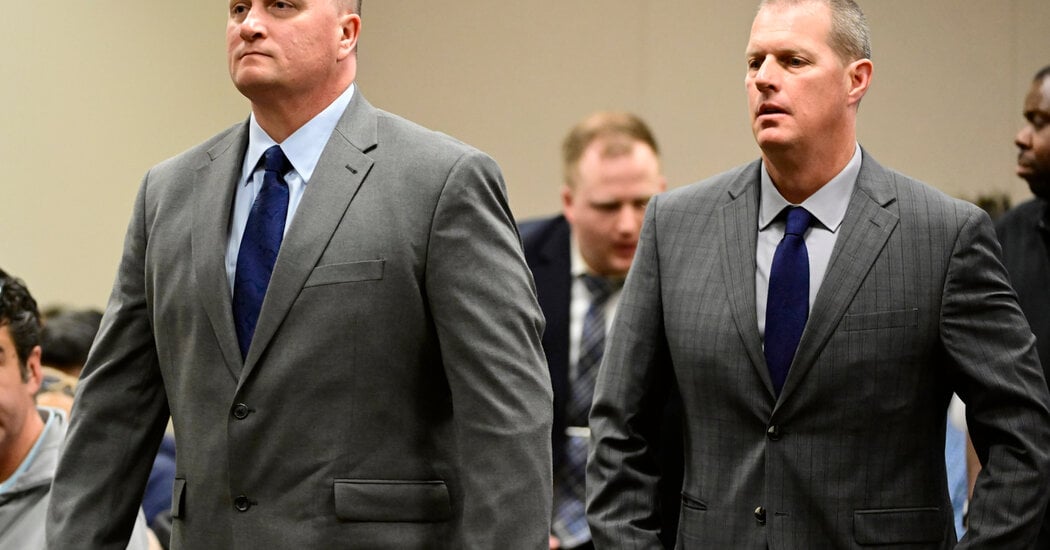Two Colorado paramedics were convicted of criminally negligent homicide in the 2019 death of Elijah McClain, a young unarmed Black man whose case drew national attention and forced public safety reforms in the city where he lived and died.
A mostly white jury found the paramedics, Peter Cichuniec and Jeremy Cooper, guilty of a more serious charge they faced. But the jury split on two lesser assault charges: They cleared Mr. Cooper of both assault charges, but convicted Mr. Cichuniec of one of those charges, second-degree assault for the unlawful administration of drugs.
The men had injected Mr. McClain with the powerful sedative ketamine while he was in police custody in Aurora, Colo., which doctors said left him near death. He died days later in the hospital.
The trial was a rare prosecution of paramedics, and raised the question of the role that medical personnel play in police encounters and whether they could be held criminally responsible for their actions.



Yeah, learning to tell cops “no” is actually a fairly large part of off-the-books EMT training. It’s not something officially trained, (because nobody wants to be the one to put it in an official handbook and earn the ire of every cop in America,) but it’s something every new EMT gets drilled on anyways.
Because there will be times when you’re the only thing standing between your patient and a belligerent cop. And in that situation, you have a duty to care for your patient, even when the cops are yelling at and threatening you personally.